Are you looking to secure your healthcare decisions in case of an emergency? Designating a healthcare proxy is a crucial step that ensures your preferences are honored when you may not be able to communicate them yourself. This simple yet powerful document appoints someone you trust to make medical decisions on your behalf, offering peace of mind to you and your loved ones. Curious about how to create your own healthcare proxy? Keep reading to discover the essential steps and key considerations!

Legal terminology and clauses
A healthcare proxy designation letter template serves as a vital legal document that enables individuals to appoint a trusted person, known as an agent, to make medical decisions on their behalf in case of incapacitation. This template usually contains critical legal terminology, including "durable power of attorney for healthcare," which ensures that the authority granted to the agent remains effective even if the principal becomes unable to communicate their wishes. Key clauses often include specific instructions regarding life-sustaining treatments, organ donation preferences, and the conditions under which the agent should make decisions. Ensuring clarity and precision in this document safeguards the principal's healthcare choices and accommodating personal values, thereby upholding their rights and preferences in challenging medical scenarios.
Clear identification of parties involved
A healthcare proxy designation requires distinct identification of individuals involved in the document. The principal, the person granting authority, needs to be clearly stated, including full name, date of birth, and address. Additionally, the healthcare proxy or agent must be identified with similar details: full name, date of birth, and address. This clarity ensures that healthcare providers can accurately honor the designated individual's wishes regarding medical treatment and decision-making in instances where the principal becomes incapacitated. Providing identification details ensures a valid and enforceable document, facilitating effective communication and implementation of healthcare decisions.
Specific powers and limitations granted
A healthcare proxy designation letter template provides a clear and structured format for individuals to appoint an agent to make medical decisions on their behalf in case of incapacitation. This template outlines specific powers, allowing the designated agent to consent to or refuse medical treatments, access confidential health information, and make end-of-life decisions. Limitations may specify the types of treatments or interventions that the agent cannot authorize, ensuring that the principal's values and wishes are honored. The document must be signed and dated, adhering to any legal requirements set by state laws, to ensure validity and effectiveness. This empowers individuals to maintain control over their healthcare choices, even when they cannot communicate their preferences directly.
Witness and notary sections
A healthcare proxy designation allows an individual to appoint someone to make medical decisions on their behalf in case of incapacitation. The witness section typically requires two adult witnesses (18 years or older), who can affirm the voluntary nature of the document without being beneficiaries of the proxy. Notary public involvement adds an extra layer of authenticity, verifying the identities of the signer and witnesses while keeping a formal record of the transaction. Specific state laws may have additional requirements regarding the number of witnesses, notary involvement, or eligibility stipulations for those appointed as proxies. These elements help ensure the validity and enforceability of the healthcare proxy in medical situations.
Revocation and amendment instructions
A healthcare proxy designation allows individuals to appoint someone to make medical decisions on their behalf in case they become incapacitated. Revocation of a healthcare proxy requires a clear written statement indicating the desire to cancel the previously appointed proxy. Specific details such as the individual's name, the date of the original designation, and the name of the healthcare proxy should be included for clarity. Amendment of a healthcare proxy involves creating a new document that supersedes the previous one, explicitly stating the changes made to the assigned agent or preferences regarding medical treatments. It is crucial to date both the revocation and amendment documents and to distribute copies to the involved parties, including healthcare providers and family members, to ensure updated directives are recognized and respected in medical situations.

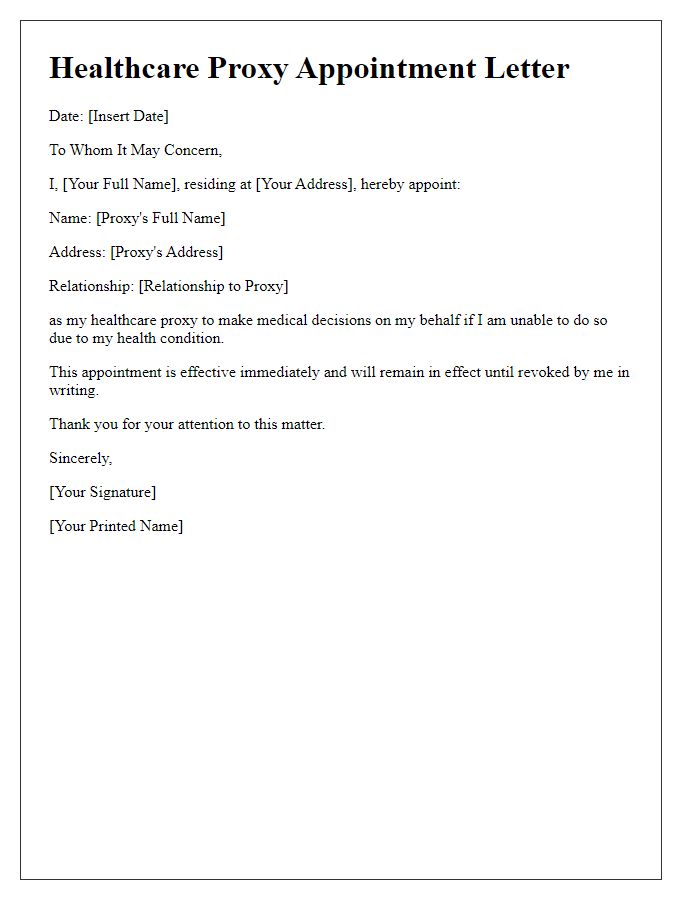
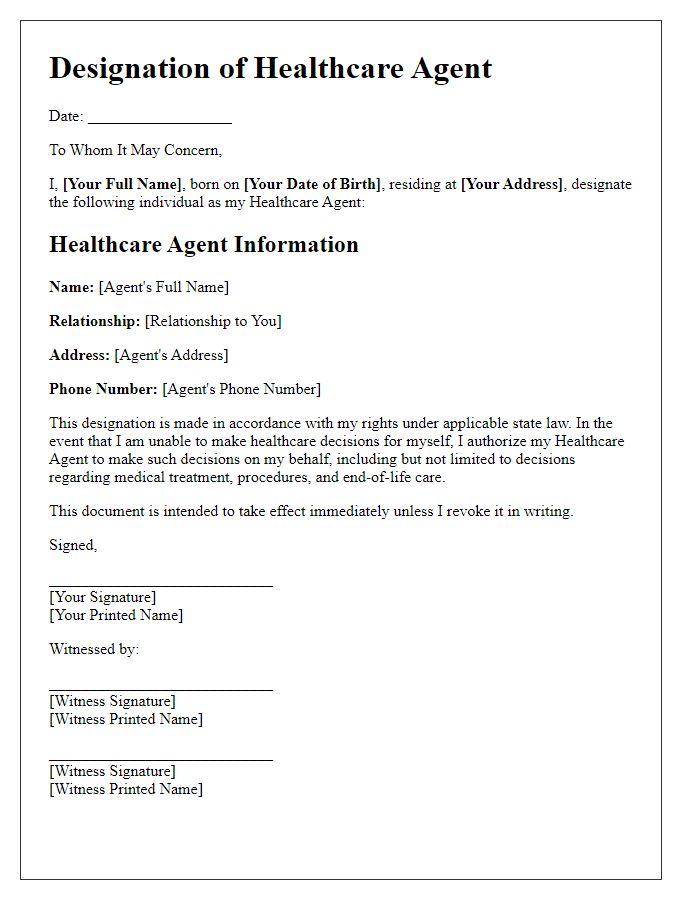
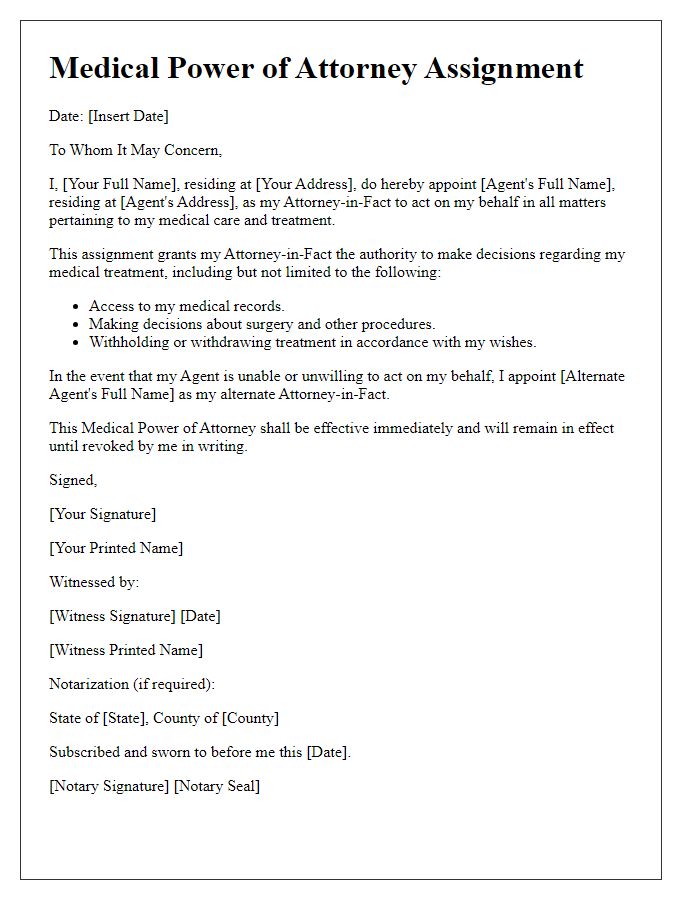

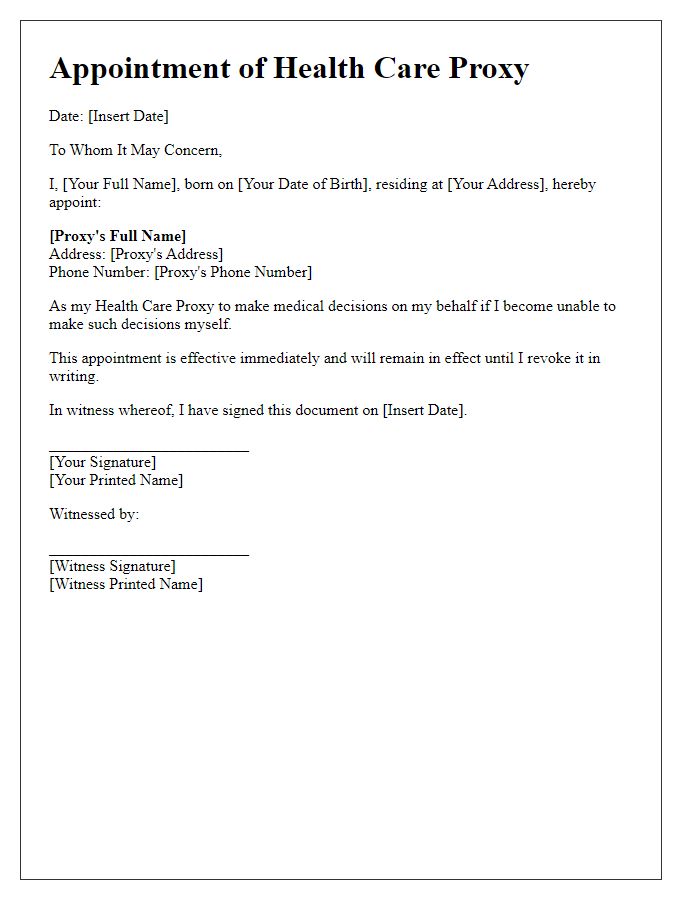
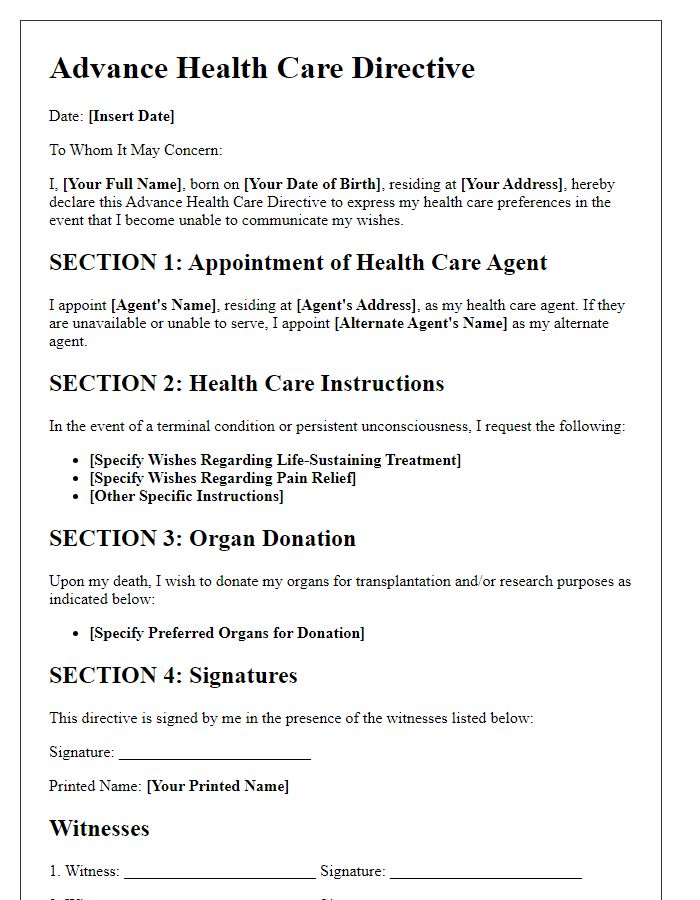
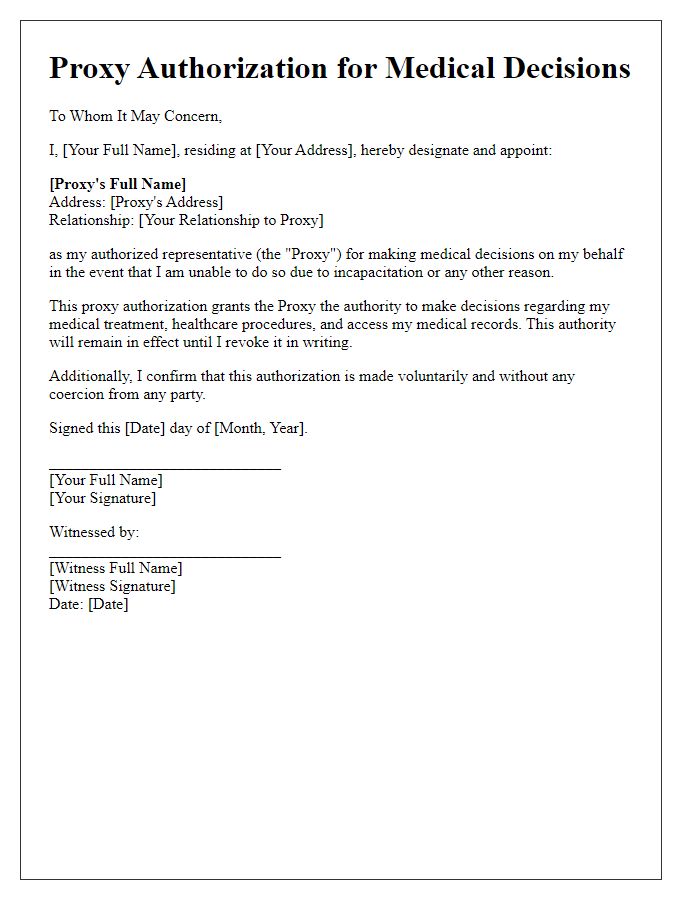
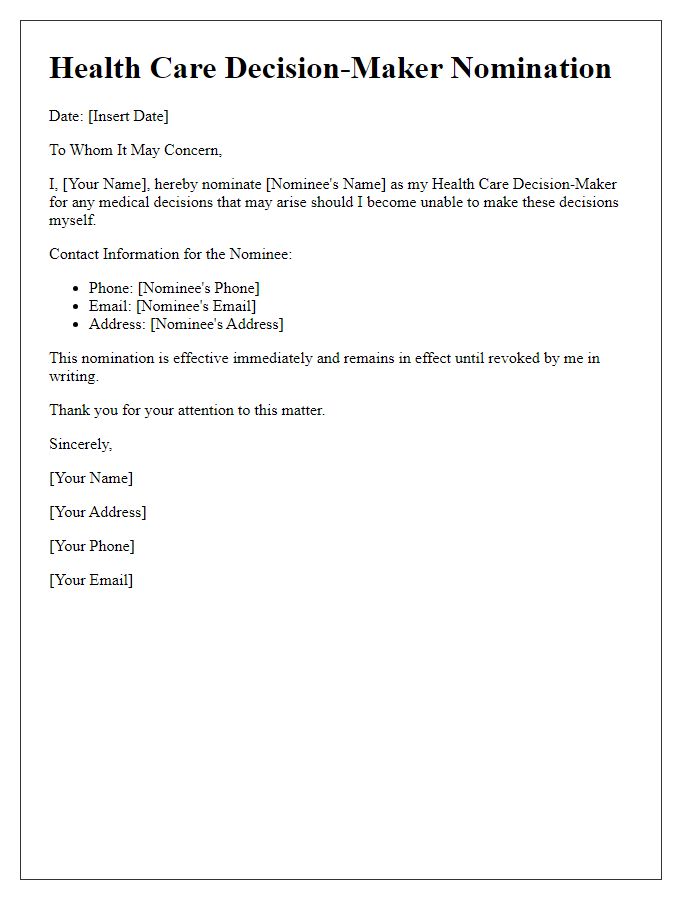
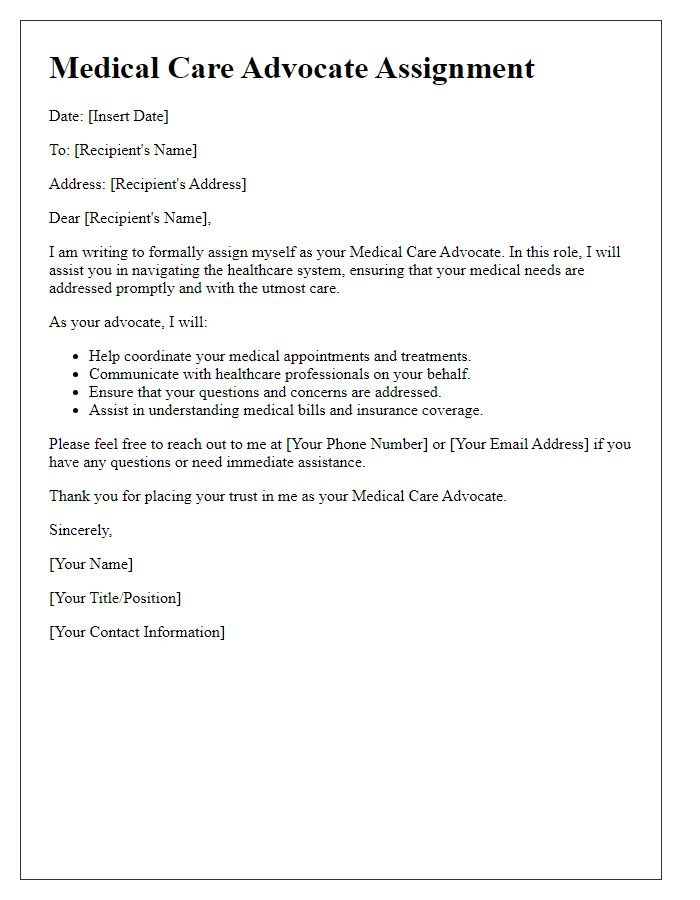
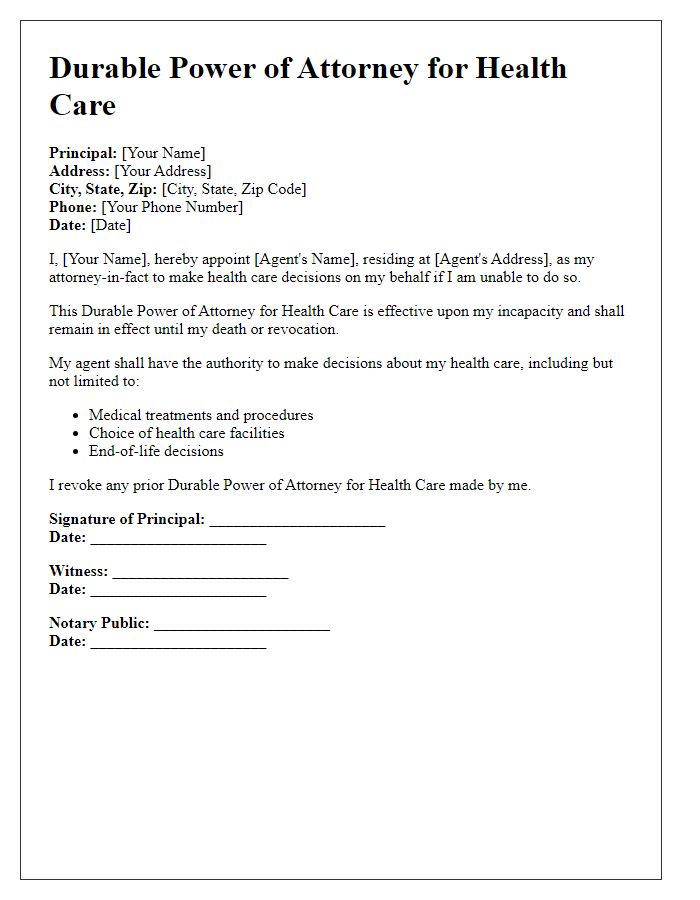


Comments